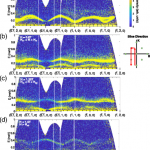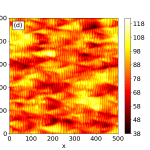
Evidence for Bose-Einstein Condensation in a Rare-Earth Magnet
The Bose-Einstein condensate (BEC) state, where almost of the particles in a system “condense” into the lowest available energy state, is a fifth state of matter after solids, liquids, gasses, and plasmas. Quantum magnets are known to be able to host BECs of “triplons”, which are quasi-particles that exist only as a collective property of the magnetic system, when tuned by a magnetic field. We have discovered evidence of a BEC phase in a rare-earth magnet, Yb2Si2O7, where Ytterbium (Yb) is the magnetic atom. This is unexpected since for a BEC to exist in a magnetic system, the interactions must be nearly isotropic. This requirement makes BEC quite unexpected in Yb2Si2O7 since Yb is a heavy element, which gives it inherent anisotropy in how it interacts with its neighbors in magnetic solids. This discovery provides a new playground for understanding BEC in magnetic systems, as well as how Yb breaks our expectations at low-temperatures in condensed matter systems.
Find more information on the PRL website.


